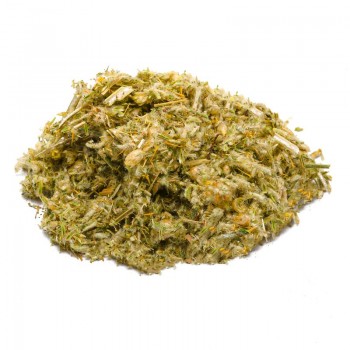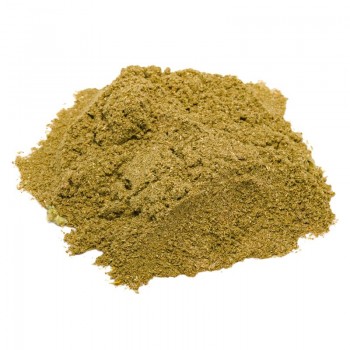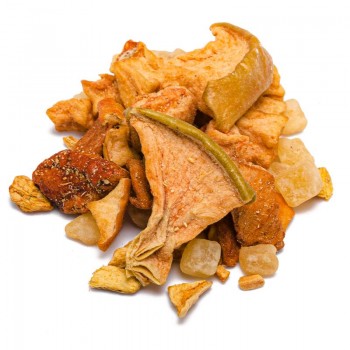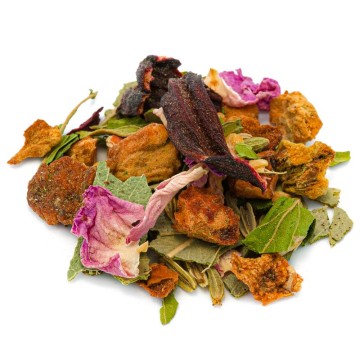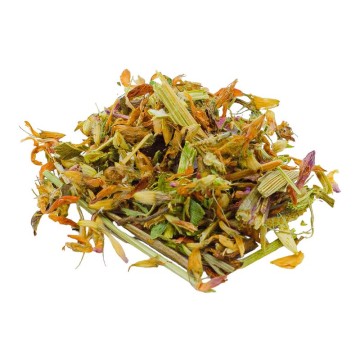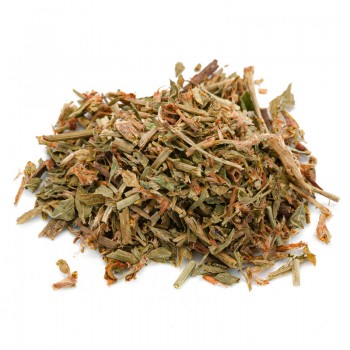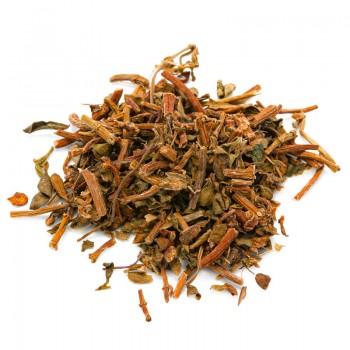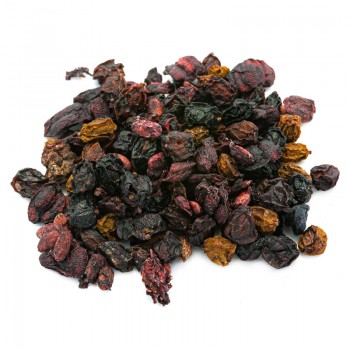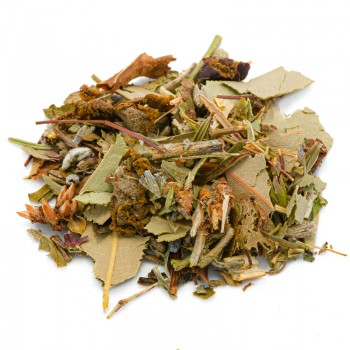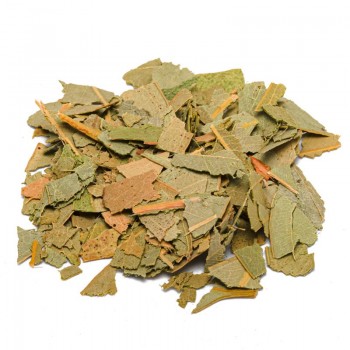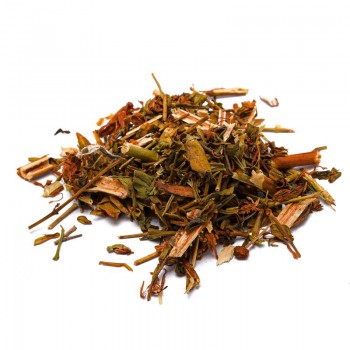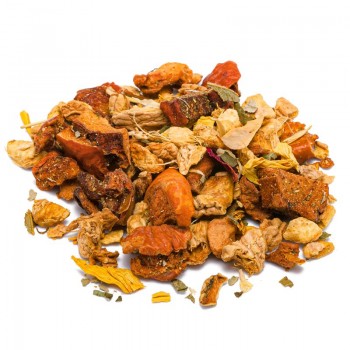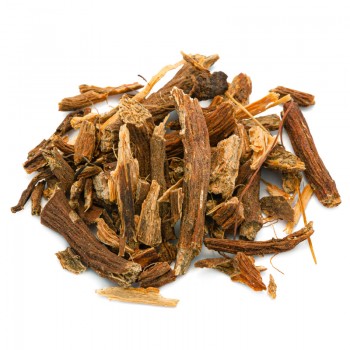This plant has historically been defined as singers' herb, because its tips were used beneficially for the protection of the respiratory system and voice problems such as hoarseness and aphonia. Its expectorant and calming qualities are healthy for the throat, bronchi and larynx, in case of burning or irritation of the respiratory tract.
Erisimo: properties and benefits
The aerial parts of the plant have been exploited for centuries for their virtues, probably due to some sulfur compounds, glucosinolat which give an anti-inflammatory action natural.
These nutrients create a reaction when they come into contact with the mucous membranes of the mouth and pharynx, increasing blood flow to the larynx and bronchi. In this way, they allow an easier expulsion of the irritating mucus. The herbal tea of erisimo, therefore, was used for the respiratory tract, in order to combat the symptoms of sore throat, pharyngitis and laryngitis. A natural remedy in case of bronchial affections and colds, especially for those exposed to the cold in the winter season. In the herbalist tradition, erysme is an excellent remedy to soothe irritations involving cough, congestion, excessive mucus secretion (as an expectorant).
An herbal tea with the tips of erisimo can promote the well-being of the airways and throat also counteracting the deterioration of the voice (aphonia) caused by inflammation of the vocal cords. They facilitate well-being in the event of inflammation of the oral cavity, relieving the sore throat of those who smoke, who suffer from burning and irritation due to tobacco. To soothe the irritations of the oral cavity, it may be useful to prepare an herbal tea for gargling and rinsing, to be done several times a day. In addition to its ability to provide a emollient herbal tea for the throat and airways, erysme has astringent and antispastic properties for digestion. Some studies have investigated its muscle relaxant abilities, ie able to relax the muscles.
In addition, the high percentages of calcium contained in the plant help the well-being of the bones. Also in this context, the magnesium content is also valid, which favors the absorption of calcium in the body. Furthermore, it can be useful for relieving muscle tension, counteracting cramps and the feeling of fatigue.
Origins and History of cultivation
The plant of the Sisymbrium officinale or erisimo, is native to Europe, in particular to the areas on the Mediterranean Sea. The name of Greek origin Erysimum derives from the terms eruo (I save) and oimos (song), and recalls its therapeutic ability to keep the singers' shrill voice. Today the erisimo plant is widespread all over the world, and grows spontaneously almost in all European countries, in North Africa and in Southeast Asia. It has been introduced in recent centuries in South and North America, Australia and South Africa. Already in Roman antiquity Pliny the Elder (1st AD) claimed that the herb was excellent against coughs, a valid remedy for treating inflammation of the throat. It was recommended together with honey by Dioscorides (1st century AD), as an antidote in case of poisoning.
In folk medicine it was known as a diuretic, and to treat colds, gallbladder disorders, pleurisy, sciatica and ulcers. The fresh grass tops were used externally for compresses against gout and rheumatic ailments. Since the Renaissance, erysimus was studied and appreciated as a useful plant for the stage: actors, singers, orators could regain their voices in case of hoarseness or aphonia. In some countries, erysme is grown for edible seeds and leaves. In Northern Europe it is an aromatic herb, while the edible leaves are appreciated for their bitter and pungent taste. In the kitchen it can be used both fresh and dry.
Plant and flowers
The erisimo plant is Sisymbrium officinale, it belongs to the Brassicaceae / Cruciferae family. It is an annual plant that grows spontaneously in uncultivated places, along roadsides, among ruins. It grows at different altitudes, from sea level to sub-mountainous regions, showing light green to deep green stems. It produces a capsule like fruit, while the flowers of erisimo, with yellow petals, are found in an inflorescence of 30 to 60 flowers each. It blooms from May to September. In herbal medicine, both the entire plant and the flowering tops are used. The interesting parts for the erisimo herbal tea are harvested in summer, and for keepinger its properties can also be ground into powder.
Nutritional values of Erisimo
The plant contains several nutrients including vitamins and minerals such as calcium, magnesium, manganese, potassium . Among the substances useful for well-being there are some polyphenols, tryptophan, threonine, folate, leucine. The active ingredients of glucosinolates and sulphocyanic acid, containing sulfur, with properties studied as natural anti-inflammatories.
How to use Erisimo - Herb of singers in herbal tea
The infusion is obtained by inserting in a cup (250 ml), about 3-5 grams of erisimo top in herbal tea cut with water at 100 ° C. Leave to infuse for 5 to 8 minutes, before drinking the anti-inflammatory herbal tea. Add honey or sugar if you wish.
Erisimo - Weed for singers: side effects and contraindications
When taking the herbal tea of erisimo, it is important to maintain the recommended doses, to avoid possible side effects. Those who have allergic reactions to plants of the Brassicaceae family must consider that the tips of the erysimus are part of this species. Furthermore, the use of erysme is not recommended for those suffering from thyroid problems, for pregnant and lactating women.

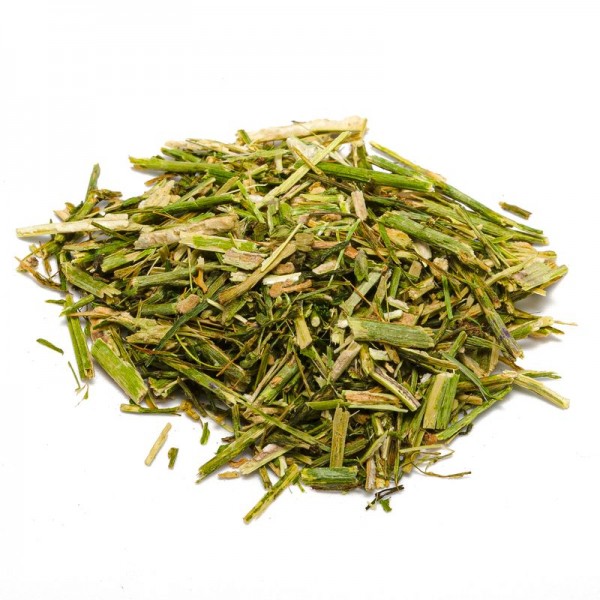









 No reward points for this product.
No reward points for this product.
